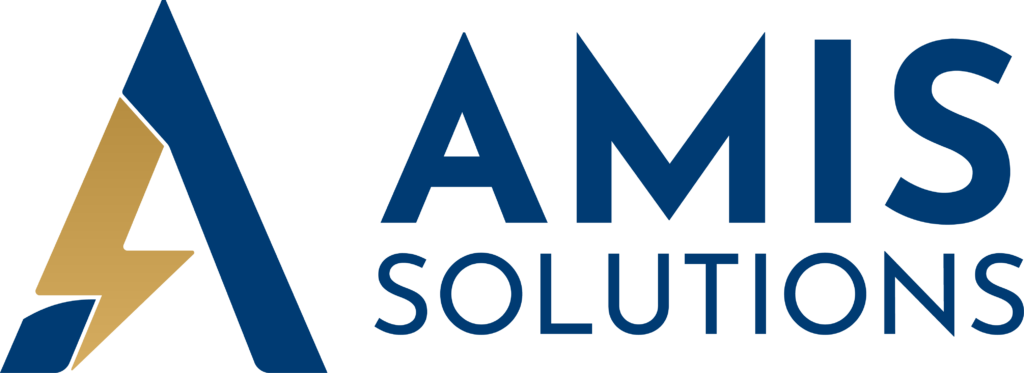Breaking into the marketing industry can be challenging, especially for recent graduates or those transitioning from other fields. However, once you do so, it will be worthwhile. This sector offers many entry-level opportunities, from digital marketing and content creation to market research and brand management. If you’re unsure how to start, refer to this guide as you explore careers in marketing. It will also give actionable tips and insights to help you stand out.
Understanding the Marketing Sector
Marketing covers a variety of disciplines, each requiring a different set of skills and expertise. Understanding these roles will help you identify which area aligns with your interests and strengths. Some of the most common entry-level roles include:
- Digital Marketing Specialist: Focuses on online campaigns, including social media, email marketing, and search engine optimization (SEO).
- Content Creator/Writer: Develops engaging short- and long-form content for blogs, websites, and social media platforms.
- Market Research Analyst: Collects and analyzes data to help companies understand consumer behavior and market trends.
- Social Media Coordinator: Manages and grows a brand’s presence on social media.
- Brand Assistant: Supports the development and execution of brand strategies.
- Public Relations Assistant: Manages a company’s public image and media relations.
- SEO Specialist: Optimizes website content to improve search engine rankings and drive organic traffic.
- Email Marketing Coordinator: Designs and executes email campaigns to engage customers and drive conversions.
- Event Marketing Assistant: Assists in planning and promoting events to boost brand awareness and customer engagement.
Additionally, it’s worth noting that many marketing roles overlap, so developing a broad skill set can make you a more versatile candidate.
Step 1: Building a Strong Foundation
Develop Relevant Skills
Marketing is a skill-driven field; employers often look for entry-level candidates with technical and soft skills. Some of the most sought-after ones include:
- Digital Marketing: Familiarity with SEO, Google Analytics, social media platforms, and paid advertising tools like Google Ads and Facebook Ads.
- Content Creation: Strong writing and editing skills, as well as the ability to create visually appealing content using tools like Canva or Adobe Creative Suite.
- Data Analysis: Proficiency in tools like Excel, Google Sheets, or data visualization platforms like Tableau to interpret marketing data and measure campaign performance.
- Communication: Excellent verbal and written communication skills for collaborating with teams, presenting ideas, and engaging with audiences.
- Creativity: The ability to think outside the box and develop innovative marketing strategies that capture attention and drive results.
- Project Management: Organizational skills to manage multiple campaigns, meet deadlines, and coordinate with cross-functional teams.
To bolster your skill set, consider taking online courses or earning certifications in areas like Google Ads, HubSpot, Hootsuite, or Google Analytics. Platforms like Coursera, Udemy, and LinkedIn Learning offer affordable and flexible options for learning these skills.
Step 2: Gain Practical Experience
While academic knowledge is valuable, hands-on experience is often what sets candidates apart. Here are some ways to gain practical experience before landing your first job:
- Internships: Apply for internships at marketing agencies, startups, or corporate marketing departments. Internships provide real-world experience, networking opportunities, and a chance to build your resume.
- Freelancing: Offer your services as a freelance marketer or content creator. Platforms like Upwork, Fiverr, and Freelancer can help you find clients and build a portfolio.
- Personal Projects: Start a blog, manage a social media account, or create a portfolio showcasing your marketing skills. For example, you could run a small Instagram campaign for a local business or create a mock marketing plan for a fictional product.
- Volunteer Work: Offer to help local businesses, nonprofits, or student organizations with their marketing efforts. This not only provides experience but also demonstrates your initiative and passion for marketing.
- Case Studies and Competitions: Participate in marketing case study competitions or challenges hosted by universities or organizations like the American Marketing Association (AMA). These events allow you to solve real-world marketing problems and showcase your skills to potential employers.
Step 3: Build a Professional Network
Establishing relationships with experienced marketers can lead to mentorship opportunities, job referrals, and valuable insights into the industry.
- Attend Industry Events: Look for marketing conferences, workshops, and networking events in your area. Events like HubSpot’s INBOUND or Social Media Marketing World are great opportunities to meet professionals and learn about industry trends.
- Join Professional Organizations: Consider joining organizations like the AMA, Digital Marketing Association (DMA), or local marketing groups. These organizations often host events, provide resources, and offer networking opportunities.
- Leverage LinkedIn: Connect with professionals in your desired field, join marketing-related groups, and engage with industry-related content. Don’t be afraid to reach out to people for informational interviews or advice.
- Alumni Networks: Reach out to alumni from your university who work in marketing. They can provide valuable guidance and may even refer you to job openings.
Step 4: Create a Standout Resume and Cover Letter
Your resume and cover letter are often your first impression of a potential employer.
Fine-Tune Your Resume
Customize your resume for each job application by highlighting the skills and experiences most relevant to the role. Use action verbs and quantify your achievements whenever possible. For example, instead of saying, “Managed social media accounts,” you could say, “Increased Instagram followers by 30% in three months through targeted campaigns.”
For starters, consider including the following in your resume:
- Contact Information: Name, phone number, email address, and LinkedIn profile.
- Summary Statement: A brief overview of your skills, experiences, and career goals.
- Work Experience: List relevant internships, freelance work, or volunteer experience. Focus on accomplishments rather than responsibilities.
- Education: Include your degree, university, and graduation date. Mention any relevant coursework or academic projects.
- Skills: Highlight both technical (e.g., SEO, Google Analytics) and soft skills (e.g., communication, teamwork).
- Portfolio Link: Include a link to your portfolio or personal website if applicable.
Showcase Your Portfolio
If you’ve worked on marketing projects, include a link to your portfolio or website. This could include blog posts, social media campaigns, analytics reports, or design work. A well-organized portfolio demonstrates your skills and creativity, making you a more attractive candidate.
Write a Compelling Cover Letter
Your cover letter should complement your resume by providing context for your experiences and explaining why you’re passionate about marketing. Be specific about how your skills align with the company’s needs and culture. Here’s a simple structure to follow:
- Introduction: Mention the position you’re applying for and how you learned about it.
- Body: Highlight your relevant experiences and skills, and explain why you’re excited about the company.
- Conclusion: Express your enthusiasm for the opportunity and request an interview.
Step 5: Ace the Interview Process
Once you’ve landed an interview, it’s time to prepare thoroughly.
Research the Company
Understand the company’s mission, values, and recent marketing campaigns. This will help you tailor your responses and show interest in the role. For instance, if the company recently launched a successful social media campaign, you could mention it during the interview and discuss how you would contribute to similar efforts.
Prepare for Common Questions
Be ready to answer questions like:
- Why do you want to work in marketing?
- Can you describe a successful marketing campaign you’ve worked on?
- How do you stay updated on industry trends?
- How do you handle tight deadlines or multiple projects?
Showcase Your Problem-Solving Skills
Marketing often involves overcoming challenges, so be prepared to discuss how you’ve solved problems in the past. Use the STAR method to structure your responses. For example:
- Situation: “Our social media engagement was declining.”
- Task: “I was tasked with developing a strategy to increase engagement.”
- Action: “I conducted a content audit, identified high-performing posts, and created a content calendar focused on those themes.”
- Result: “Within three months, engagement increased by 25%.”
Ask Thoughtful Questions
Doing so demonstrates your interest in the role and the company. Ask questions like:
- What does success look like in this position?
- How does the marketing team collaborate with other departments?
- Are there opportunities for professional development or training?
Step 6: Leveraging Online Platforms
In this day and age, your online presence can dramatically impact your job search.
Optimize Your LinkedIn Profile
Your LinkedIn profile should serve as an extension of your resume. Use a professional photo, write a compelling headline, and include a detailed summary of your skills and experiences. Engage with industry-related content and join LinkedIn groups to expand your network.
Create a Personal Website
A personal website can serve as a centralized hub for your portfolio, resume, and blog. It’s an excellent way to showcase your creativity and technical skills. Platforms like Wix, Squarespace, and WordPress make it easy to create a professional-looking website.
Engage on Social Media
Follow companies you’re interested in and engage with their content. Share your thoughts on industry trends and showcase your knowledge through posts and comments. Building a strong social media presence can help you stand out to potential employers.
Step 7: Explore Entry-Level Job Opportunities
When searching for entry-level marketing jobs, try following these best practices:
Use Job Boards
Websites like Indeed, Glassdoor, and LinkedIn are great resources for finding entry-level marketing positions. Set up job alerts to stay updated on new opportunities.
Apply to Marketing Agencies
Marketing agencies often hire entry-level candidates and provide exposure to a variety of industries and clients. This can be an excellent way to gain diverse experience.
Consider Startups
Startups may offer more responsibilities and opportunities for growth, even at the entry level. Working at a startup can help you quickly develop a wide range of skills.
Attend Career Fairs
Career fairs are a great way to meet recruiters and learn about job openings. Bring copies of your resume and be prepared to discuss your qualifications.
A Final Tip
Exploring careers in marketing after college or a career shift may seem challenging, but with the right preparation and mindset, you can achieve your goal. Don’t get discouraged by rejections; instead, use them as opportunities to learn and improve. Put in the effort by seeking feedback from interviewers, refining your resume, and building your skills. Remember that every small step you take brings you closer to landing your first job in marketing.
Your Opportunity Awaits
Thankfully, Amis Solutions offers numerous jobs for marketing graduates and career changers looking to break into the industry. Our team is dedicated to helping ambitious professionals find roles that match their skills, passions, and career goals. Explore our job openings and start your journey with Amis Solutions!

